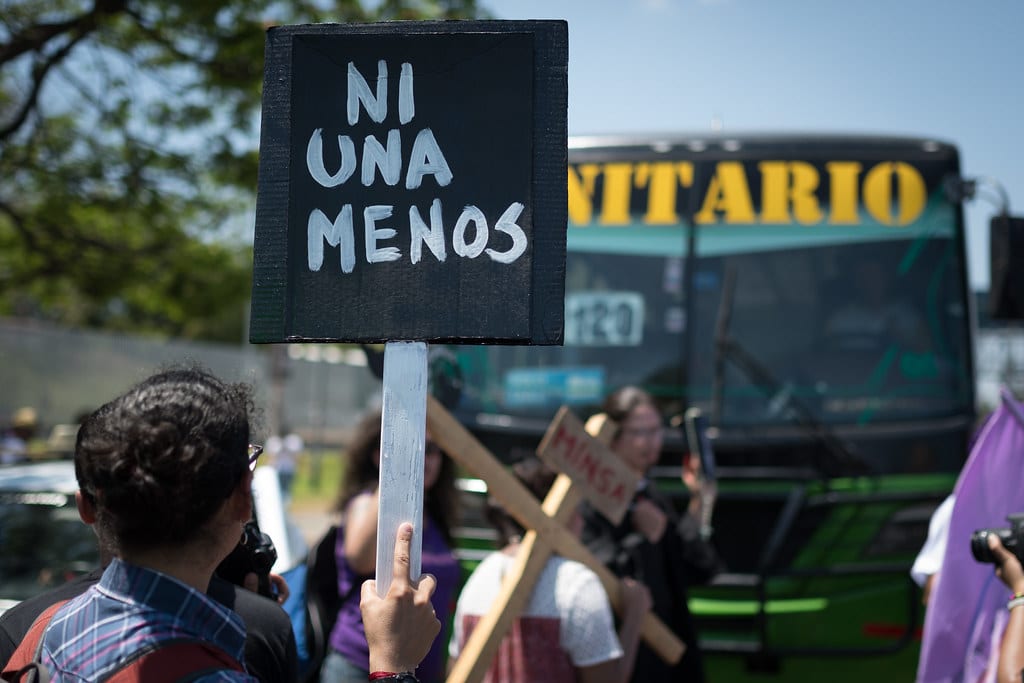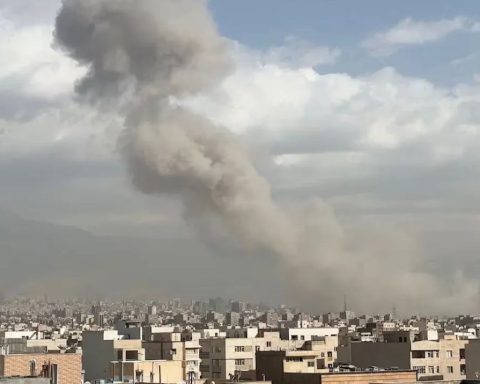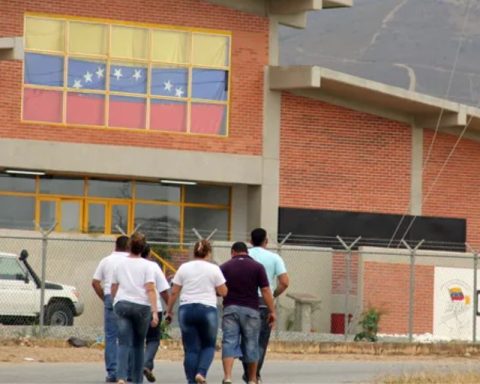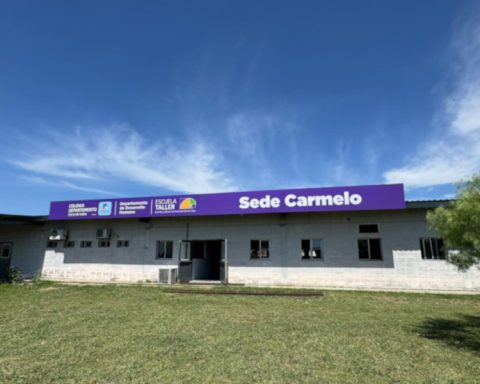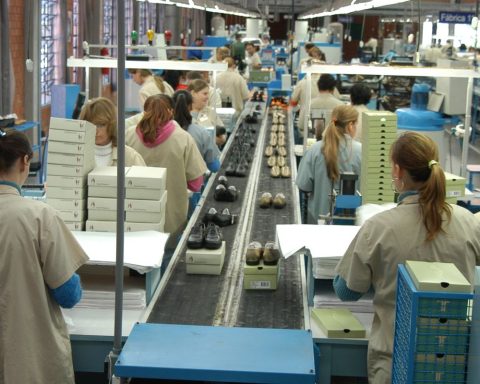The Ortega regime has inaugurated, in the last two years, 104 Police Stations for Women and Children, which were previously closed on a discretionary basis. However, the reopening of these offices has not been enough to stop sexist violence, which in the same period has ended the lives of 143 women, including Martha Alice Robinsonthe first victim of femicide in 2022.
After the murder of Robinson, the Government assured that they are working on a new strategy to stop the femicides that are considered: “a plague, a pestilence, a pandemic”, by Vice President Rosario Murillo. But, from the perspective of sociologist Marycé Mejía, national liaison for the Women’s Network Against Violence, the strategy is necessary, but she sees it as unlikely to achieve its goal while laws and human rights are not respected in the country.
He adds that in Nicaragua you cannot make a “clean slate” either, as the president suggested. Daniel Ortega regarding the crimes committed in the context of the social outbreak of 2018. “That is a typical phrase of an aggressor”, considers the defender, in an interview with CONFIDENTIAL, in which he also analyzes the importance of making femicides visible in a degree of frustration and the increase in impunity.
The Government announced the implementation of a strategy “for protection, promotion of values, which allows femicides to be stopped.” What should that proposal contain for it to work in practice?
In the first place, it must have as its starting point a national investigation of the real situation of women and girls in Nicaragua. Then, it must be accompanied, both by the victims -to know their perception-, as well as by public officials and men, as part of co-responsibility for this problem, and also for access to real justice.
In Nicaragua we have serious conditions in the attention to the victim, to support them, to protect them. Rather, there is too much influence peddling that protects the aggressors that makes them go on the run, and that they do not comply or do not pay for the crime committed. On the other hand, part of the access to justice is social justice, that is, the repair of damages. How women are going to have psychological support, recover from trauma, see orphaned children and adolescents, see how to support the family to heal that trauma (…)
Femicide is the extreme of violence, but before there was psychological violence, sexual violence, patrimonial violence, violence in all its expressions. This must have this strategy, how to end violence before it reaches femicide, how to prevent women from identifying the aggressor before he commits a crime
Since 2020, the Government resumed the reopening of the Police Stations for Women and Children. However, more women continue to be killed. What’s going on? What is failing?
There was a closure, a break in the care protocol and access to justice for women that exacerbated the problem. Now, they come with wanting to repair the damage, wanting to reopen them – the Police Stations – but, you make a study of how the Women’s Police Station is working at the national level, it will be completely postponed.
It does not comply with any international standard of protection for victims of violence because there is no specialized personnel, there is not even a hotline where women can call, you are going to file a complaint and they judge you, they tell you there is no gas, no they comply with the precautionary measures, rather, they manipulate you so that you mediate. This is completely blundering and should be punished. No public official should manipulate any victim to mediate with their aggressor and that is what we see in the Police Stations and this, knowingly, because I have heard the expressions of women who are going to file a complaint and they are not paid attention.
Femicides and violence against women in Nicaragua
This reopening has not been of any use because it is not an institution that specifically sees violence. There must be, as I say, sensitive officials with financial resources on a par with a prevention campaign. The Women’s Police Station is the gateway for access to justice for women. Of the 71 femicides of 2021 and -the 71- of 2020, 90% are in impunity, other men committed suicide, others are fugitives.
In 2021 life imprisonment was legalized to punish hate crimes. What has been the impact of this measure on the route of access to justice for the families of the victims of femicide?
Of the cases that we know of, only four have been sentenced to life imprisonment for violence. Many of the families moved by pain and indignation are asking for life sentences for many of the femicides and aggressors who murdered their daughters. However, we, as human rights defenders, cannot be in favor of a law that is completely inhumane and against human rights (…) it is more of an educational action, of more access to justice.
It is contradictory to have a life sentence law and on the other hand, there are pardoned men, who did not even serve their sentence, went out and committed the crime again (…) it is like putting a patch on a problem that must be seen in an integral way . We do not see any impact, any positive effect of this law.
What is the level of impunity in cases of femicide? Has it grown from 2018 to date?
Impunity has had a rather alarming, outrageous and considerable increase in attention, the statistics tell you: 140 frustrated femicides -in 2021-, 71 femicides 2020 and 2021 -respectively- and that instead of reducing with a legal framework Rather, they are increasing. And this is propitiated by the multiple crises that are occurring in Nicaragua (…) this entire environment of lack of protection and defenselessness for women fosters impunity and increases it.
What role does mediation play?
It is very serious. No law to protect victims of sexist violence contemplates mediation because it is only done when there is equal power between both parties.
You can mediate when you have equal power and can reconcile with a person, but in sexist violence where women have been threatened with death, where they have a history of violence, where they are emotionally distraught, where they have an absolute distortion of what is reality of her self-esteem, of her personal power that is on the ground, is a woman going to be able to mediate with an aggressor who threatens her, manipulates her, blackmails her, humiliates her, who threatens her children, who threatens her family? ?
It is completely counterproductive, it is putting the lives of women and their children at risk (…) mediation does not favor the victim, it is quite the opposite, it favors the aggressors.
Until now, the State does not recognize femicides in a degree of frustration. What is required to make them visible?
In the institutions, specifically, the Police Stations do not make visible the femicides that occurred in the public sphere, much less the frustrated femicides, and that is another problem that makes it impossible to have action strategies.
Is it necessary to reform Law 779?
There are 140 women who escaped death and who are with very serious consequences. Those women are alive, but I assure you they are dead inside. On an emotional and psychological level, they are broken women who have no support, just like their children, their family; they were 140 in 2021, but the rest of the other years. It’s alarming, barbarity!
It is not specified in Law 779. An article that has all these analyses, of what frustrated femicides mean and how it should be accompanied.
President Daniel Ortega said on January 10- at his swearing-in for a fourth consecutive presidential term, that a “clean slate” had to be made in reference to the social outbreak of April 2018. His statements were rejected by the families of the victims who continue to demand justice. How does this position affect the fight to prevent any femicide from going unpunished?
This discourse is another one that promotes impunity and encourages the aggressors who have committed crimes against women not to pay for their crime. In Nicaragua you must recover the historical memory, let us not forget what has been done and let us not forget what has been done to women.
There are lost lives here. Here there are completely broken families, families completely broken by all these crimes that have been committed and that damage must be repaired and -let there be- justice. It is that the truth be spoken, that all those who committed crimes pay for their crime. It is not making a clean slate. What happens is that this is a speech of a typical aggressor.
What does the aggressor tell you? – Forgive me – let’s pretend that nothing happens and we start again, we start again but the cycle of violence. That is why this non-impunity thing is important and that the aggressors pay for their crime, because if they paid for their crime and realized how tremendous and the effect that violence has, I assure you that we would not be talking about so many femicides. That clean slate is from a typical Nicaraguan aggressor.
